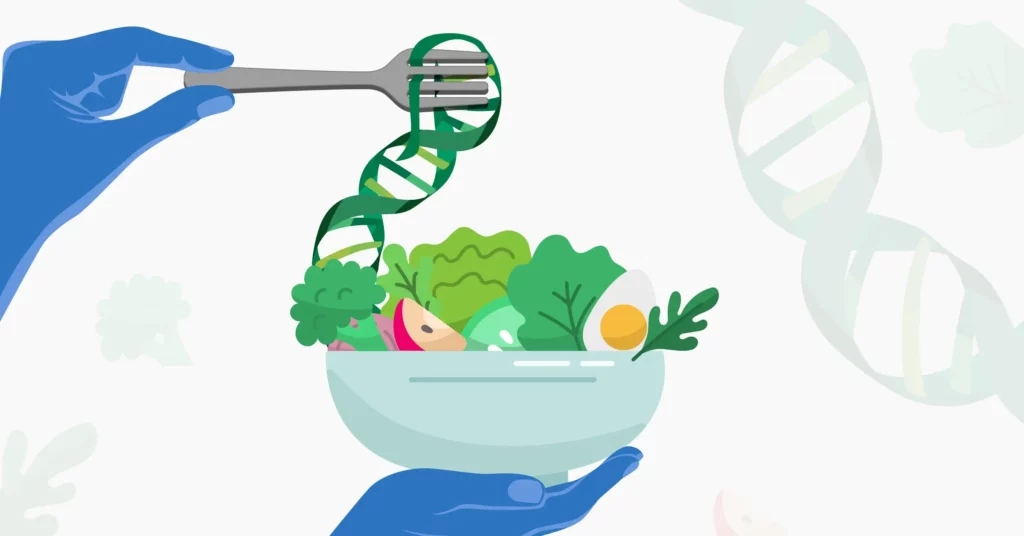As someone who can devour a plate of buffalo wings without breaking a sweat, I often find myself puzzled by my friends' reactions to spicy food. While I enjoy the spicy kick, they’re left gasping for water, tears streaming down their faces. This stark contrast sparked my curiosity about what really determines our spice tolerance. After diving into some fascinating research, I discovered that our ability to handle heat isn’t just about taste preferences—it has a significant genetic component!
What Causes The “Heat” When We Eat Spice?
The taste buds present on our tongue can taste salty, sweet, or sour foods.
However, there are no receptors to taste spicy food.
Therefore, the heat you feel from spicy food is a pain sensation.
Chilli peppers have a component called Capsaicin that makes them hot and spicy.
This component binds with a receptor called TRPV1 on the tongue, giving a heat sensation.
This receptor is involved in regulating your body temperature.
Repeated exposure can gradually make this receptor less sensitive.
Why Can Some People Tolerate Spice More Than Others?
Spice tolerance has a lot to do with genes.
In fact, a study has reported that up to 58% of differences in spice tolerance among individuals can be attributed to genetics.
While there may not be a single gene contributing to spice tolerance, it is hypothesized that people with higher tolerance have fewer TRPV1 receptors on the tongue.
This means that they may be less sensitive to the burning and painful feeling of spice and can thus enjoy it more.
However, the good news is that spice tolerance is something that can be built with repeated exposure.
When you consume spicy foods regularly, you desensitize the receptors which will allow you to enjoy them without the burning sensation.
Is There A Link Between Spice Tolerance and Personality?
Spice tolerance might have a surprising connection with personality.
People who are thrill seekers and are more adventurous might like spicy food.
People who take more risks and enjoy otherwise scary situations like an extreme roller coaster ride might like spicy food.
Are There People Who Can't Taste Spiciness?
People who love spicy food and don't find it painful have fewer Capsaicin receptors.
It is not that they cannot taste the spiciness altogether, but they feel less pain and heat.
Over time, eating spicy food can desensitize nerve endings, resulting in a higher spice tolerance.
People from Mexico, Korea, or India are naturally more tolerant of spicy food because they consume them regularly.
They have become desensitized to the pain from a young age.
How To Improve Spice Tolerance?
Building your spice tolerance is not only possible but can also be an enjoyable journey! Here are some effective strategies to help you gradually increase your ability to handle spicy foods:
Start Small and Gradually Increase Exposure
Begin by incorporating small amounts of spicy ingredients into your meals.
This could be as simple as adding a pinch of chili flakes to your pizza or a dash of hot sauce to your soup.
The key is to start with a level of spiciness that is manageable for you and slowly increase it over time.
Consistent Consumption
Regularly consuming spicy foods can help desensitize your TRPV1 receptors.
The more frequently you expose your taste buds to spice, the more accustomed they will become.
Over time, this repeated exposure can lead to a higher tolerance, allowing you to enjoy spicier dishes without discomfort.
Mix Spices with Familiar Foods
Combining spicy elements with familiar flavors can make the transition easier.
For instance, try mixing spicy salsa with guacamole or adding chili powder to a dish you already love.
This way, you can enjoy the flavor of spice without overwhelming your palate.
Experiment with Different Types of Spices
Not all spicy foods are created equal.
Some spices provide heat without intense burning sensations.
For example, try milder peppers like poblano or Anaheim before tackling hotter varieties like jalapeños or habaneros.
This variety can help you find a comfortable entry point into the world of spice.
Hydrate and Use Dairy Products
When consuming spicy foods, have dairy products like yogurt or milk on hand (not recommended if you are lactose intolerant).
Dairy contains casein, which binds to capsaicin and helps neutralize its effects.
Staying hydrated is also essential, as it can alleviate some of the discomfort associated with eating spicy foods.
FAQs On Spice Tolerance
What Ethnicity Has The Highest Spice Tolerance?
According to a recent report by Technomic, Asians appear to have the highest spice tolerance, while Caucasians, have the least.
Why Do Some People Have Higher Spice Tolerance?
It is a mix of both nature and nurture. Some may be born with fewer spice receptors in their tongue, which makes them less sensitive to the burning sensation of spice. Repeated exposure to spice right from a young age can also build up spice tolerance.
Does Spice Tolerance Mean High Testosterone?
A 2014 study revealed that higher salivary testosterone levels were associated with higher consumption of hot sauce and lower self-reported perception of spiciness. However, more research needs to be done to check if this theory has any merit.
Summary: Is Spice Tolerance Genetic?
Spice tolerance is mainly genetic.
Capsaicin, the spice component found in chili peppers, can elicit pain when binding to the TRPV1 receptors.
People who have fewer TRPV1 receptors are less sensitive to spicy food.
Spice tolerance also has a lot to do with someone's personality.
Spice tolerance can be gradually built by eating small amounts of spicy foods over time.
References
http://www.sciencedirect.com/science/article/pii/S0031938412003095
Expert Picks

How Genes Influences The Tendency To Prefer Bitter Foods?

How Nutrigenomics is Changing the Way We Think About Food




